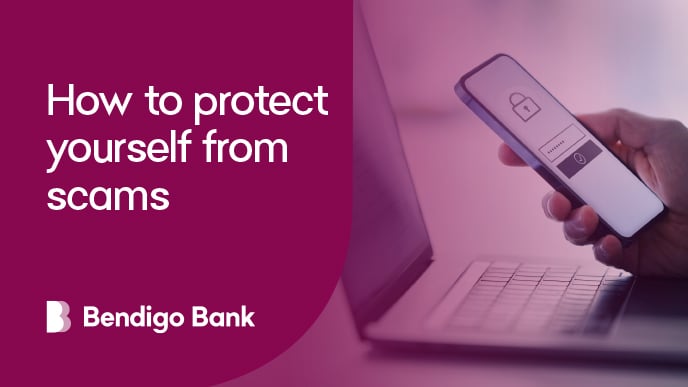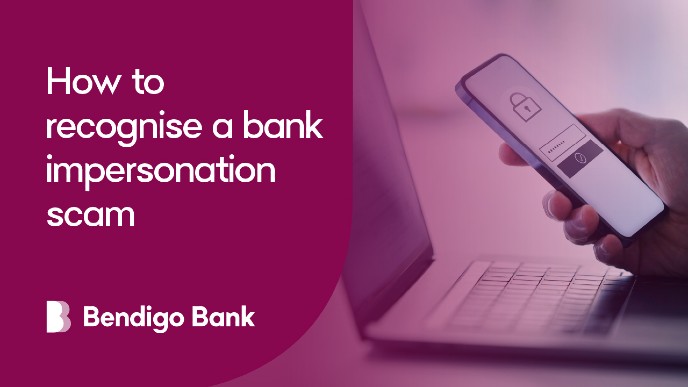In today’s digital world, our banking and personal lives are increasingly online but with convenience comes risk. Cybercrime is rising, and Australians are increasingly falling victim to data breaches, identity theft, and online scams.
Over 2 million Australians experienced some form of identity theft or fraud in the past 12 months. The finance sector remains one of the most targeted for data breaches.
So how can you stay safe? You don’t have to be a cyber expert to protect yourself. Here are nine easy tips that can help keep you and your family’s personal information out of the wrong hands.
1. Use strong, unique passwords
Passwords are like keys—don’t use the same one for every lock. Reusing the same password across multiple sites puts all your accounts at risk.
Consider updating your passwords using the following tips:
- Adopt passphrases: Passphrases are the more secure version of passwords. A passphrase is made up of 4 or more random words, making it longer than a standard password. They are easy to remember but hard for cybercriminals or computers to guess.
- Use long passwords – 12 or more characters is the usual recommendation.
- Use a dedicated password manager (avoid less secure browser-based managers) to store and create strong passwords that you don’t have to remember.
- Use a password strength tester to see how long it would take to crack different types of passwords.
2. Turn on Multi-Factor Authentication (MFA)
Multi-factor authentication means having extra checks to prove your identity verification when logging into your accounts. These can include passwords or phrases, verification codes via text or email, app-generated authenticator codes, or biometrics like fingerprint or face ID matching. You need more than a password to protect your online accounts, and enabling MFA makes substantially harder for hackers to access your accounts.
Enable MFA on all accounts that offer it. It only takes a few seconds and adds powerful protection.
3. Watch out for scams and phishing
Scam messages often look like they’re from a real company—even Bendigo Bank—but are designed trick you into giving up your personal information. They may try to steal your online banking logins, credit card details or passwords. Phishing can result in the loss of information, money or identity theft.
4. Keep your devices protected and updated
We’re all guilty of ignoring those update reminders from time to time. But did you know updating your apps and system software can help keep your private information safe? Out-of-date apps or systems leave you vulnerable.
Make sure to:
- Turn on automatic updates for your phone, browser, and banking app.
- Protect devices with a passcode, fingerprint or face ID.
- Enable auto-lock after inactivity.
- Secure your home Wi-Fi with a strong unique password.
5. Avoid public Wi-Fi for banking
Public Wi-Fi is convenient—but not secure. Hackers can intercept your connection and steal your information. Use mobile data or a trusted VPN when accessing your bank account outside your home.
6. Be careful what information you share
Cybercriminals can use your social media posts to guess your passwords or answer your security questions. Don’t share personal details like your full name, address, phone number, birthday, pet’s name, or mother’s maiden name publicly. Remember to only provide what is required when disclosing your personal information.
7. Pause before you interact – trust your instincts
Scammers may pretend to be Bendigo Bank—or another official organisation. If you feel pressured or uncertain, it’s okay to hang up and double-check. Never share passwords or one-time codes – even if someone claims to be from Bendigo Bank.
8. Read privacy policies
Privacy policies have become ubiquitous with the digital landscape – but when was the last time you actually read one? We’re quick to accept terms, conditions and policies, but it pays to take the time to read what you’re agreeing to.
9. Start the privacy conversation
This Privacy Awareness Week 2025 (16 - 22 June) the theme is 'Privacy – it’s everyone’s business’. It’s time for Australians to get serious about privacy and start the conversation.
Starting the conversation about data and privacy with your family and friends can be as easy as sharing tips, experiences and stories to help promote good privacy practices. Privacy literacy is critical and teaching your children to be aware of the risks of online behaviour will equip them with the right skills to navigate an increasingly digital world.
Find more helpful resources and tips (external site) for keeping your information safe online.
What to do if you think you’ve been scammed
If you have received a suspicious message, please take a screenshot and email it to phishing@bendigoadelaide.com.au or forward it to 0429 557 997 and then delete the SMS text message or email.
If you have received a SMS text message or email and have clicked on the link and entered your Bendigo Bank e-banking details, please contact your local branch or call 1300 236 344 immediately. Our team is here to help you.
For more information and resources visit Report and recover from scams | Cyber.gov.au.
Learn more about our latest scam alerts and information to keep yourself and your family safe online.
Things to remember
- Bendigo Bank will never request personal information such as a pin or password or ask you to login to online services from an email or SMS text message.
- Never provide your 6-digit e-banking security code to anyone over the phone or online.
- Bendigo Bank will never ask you to click on a link in an SMS text message to login to e-banking or request remote access to your PC or device.
At Bendigo Bank your security is our priority. By following these simple steps, you can help protect your money and personal information from fraud and identity theft.
Stop - don't give money or personal information to anyone if you're unsure.
Think - ask yourself, could the message or call be a fake?
Protect - act quickly if something feels wrong.








